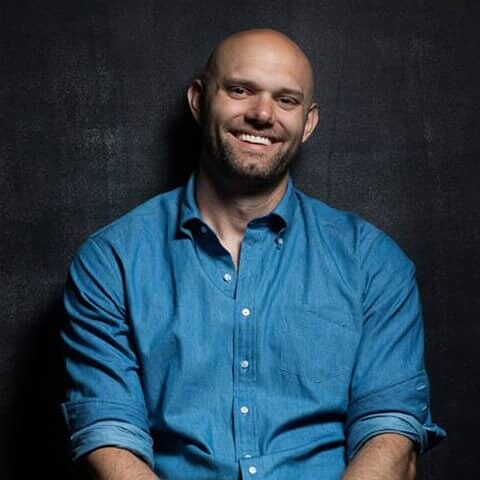 author
authorGerry Spence
Gerald Leonard Spence (born January 8, 1929) is a semi-retired American trial lawyer. He is a member of the Trial Lawyer Hall of Fame. Spence has never lost a criminal case before a jury, either as a prosecutor or a defense attorney, and has not lost a civil case since 1969. Spence graduated from the University of Wyoming in 1949 and the University of Wyoming College of Law in 1952 and was first in his class.
He was awarded an honorary Doctor of Laws degree in May 1990. He started his career in Riverton, Wyoming, and later became a successful defense attorney for the insurance industry. Years later, Spence said he "saw the light" and became committed to representing people instead of corporations, insurance companies, banks, or "big business." From 1954 to 1962, he served as prosecuting attorney of Fremont County, Wyoming.
Gerry Spence and his second wife, Imaging, share their time between their homes in Dubois, Wyoming, and Santa Barbara, California. Despite having homes in two states, Spence said he would "die in Wyoming." Spence gained attention for the Karen Silkwood case. Karen Silkwood was a chemical technician at the Kerr-McGee plutonium-production plant, where she became an activist and vocal critic of plant safety, also known as a whistleblower.
On November 13, 1974, Silkwood died in a one-car crash under suspicious circumstances after reportedly gathering evidence for her union. Spence represented Silkwood's father and children, who charged that Kerr-McGee was responsible for exposing Silkwood to dangerous radiation levels. Spence won a $10.5 million verdict for the family.
In 1984, the United States Supreme Court upheld the family's right to sue under state law for punitive damages from a federally regulated industry. The Silkwood case achieved international fame and was the subject of many books, magazines, and newspaper articles, and the major motion picture Silkwood starring Meryl Streep as Karen Silkwood.
After the Silkwood case, Spence tried several high-profile cases. He has not lost a civil case since 1969 and has never lost a criminal case with a trial by jury. He has had several of his more prominent civil verdicts overturned on appeal and lost a 1985 manslaughter case in a bench trial in Newport, Oregon, in December 1985, later prevailing on appeal.
Spence successfully defended Randy Weaver on murder, assault, conspiracy, and gun charges in the Ruby Ridge, Idaho, federal standoff case by successfully impugning the conduct of the FBI and its crime lab. Spence never called a witness for the defense. He relied only on contradictions and holes in the prosecution's story. Spence later wrote that he rejected Weaver's anti-Semitic beliefs but took the case because he believed Weaver had been entrapped into committing a crime and, furthermore, that federal agents had behaved unconscionably in shooting Weaver's wife and children.
He also successfully defended Ed Cantrell in the Rock Springs, Wyoming, murder case, and he won the acquittal of former Filipino First Lady Imelda Marcos in New York City on federal racketeering charges. Spence also defended Earth First! Founder David Foreman, who in 1990 had been charged with conspiracy for an alleged plot to sabotage a water-pumping station.
On June 2, 2008, Spence acquitted Detroit lawyer Geoffrey Fieger, who was charged with making unlawful campaign contributions. Before returning a not-guilty verdict, the federal court jury deliberated 18 hours over four days. The acquittal maintained Spence's record of never losing a jury trial in a criminal matter.
In civil litigation, Spence won a $52 million verdict against McDonald's Corporation on behalf of a small, family-owned ice cream company. A medical malpractice verdict of over $4 million established a new standard for nursing care in Utah. In 1992 Spence earned $33.5 million verdicts for emotional and punitive damages for his quadriplegic client after a major insurance company refused to pay on the $50,000 policy.
In 1986, Spence defended Lee Harvey Oswald, the deceased assassin of U.S. President John F. Kennedy, against well-known prosecutor Vincent Bugliosi in a 21-hour televised unscripted mock trial sponsored by London Weekend Television in the United Kingdom. The mock trial involved an actual U.S. judge, a jury of U.S. citizens, introducing hundreds of evidence exhibits, and many actual witnesses to events surrounding and including the assassination.
The jury returned a guilty verdict. Expressing admiration for his adversary's prosecutorial skill, Spence remarked, "No other lawyer in America could have done what Vince did in this case." The "docu-trial" and his preparation for it inspired Bugliosi's 1600-page book examining the details of the Kennedy assassination and various related conspiracy theories, entitled Reclaiming History, winner of the 2008 Edgar Award for Best Fact Crime. In the book, Bugliosi cites his respect for Spence's abilities as a defense attorney as his impetus for digging more deeply into various aspects of the case than he perhaps would have otherwise.
Best author’s book




















